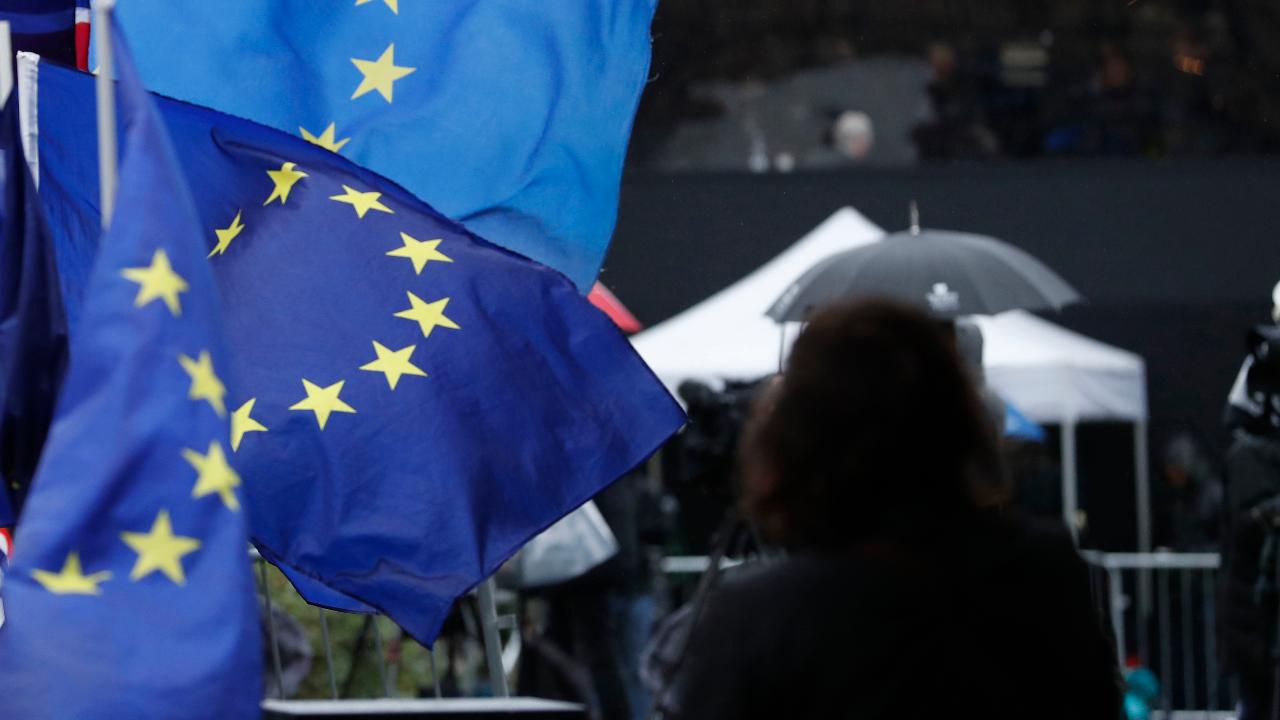ECB pushes back rate hike as outlook darkens
The European Central Bank pushed back the timing of its first post-crisis interest rate hike again on Thursday and said it would continue paying banks for lending in its latest effort to revive a slowing euro zone economy. ECB President Mario Draghi said policymakers had addressed the ECB's readiness to act in case of "adverse contingency" and several had raised the possibility in Thursday's discussion of further interest rate cuts or restarting asset purchases.
The moves, bolder than analysts had expected until only a few weeks ago, come as a trade war between the United States and China overshadows the global economy and especially export-oriented euro zone countries such as Germany.
Draghi told a news conference following the policy announcement that the decisions taken had been unanimous.
Responding to rapidly deteriorating inflation expectations, the ECB pledged to keep its interest rates at their current, record-low level at least through the first half of 2020, instead of the end of this year as it had said only in March.
Explaining that decision, Draghi said risks to the economy were tilted to the downside.
"The uncertainty about the Brexit negotiations and ... about the vulnerabilities of certain emerging market countries which are important, and more generally the uncertainty about global trade growth, have extended beyond what we believed in March and that is why we have extended our forward guidance," Draghi said.
Growth projections by the central bank were revised up to 1.2 percent for this year but marked down to 1.4 percent for both 2020 and 2021. Inflation forecasts were also tweaked at Philip Lane's first policy meeting as ECB Chief Economist. Prices are now seen rising 1.3 percent this year, 1.4 percent next year and 1.6 percent in 2021.
The ECB targets an inflation rate of just below 2 percent, but it has undershot this since 2013 and projections suggest it will continue to miss it for years to come.
TLTRO TERMS
The ECB also said on Thursday it will let banks borrow from it at rates just 10 basis points above its minus 0.4 percent deposit rate provided they beat the ECB's lending benchmarks in a new targeted longer-term refinancing operation, or TLTRO.
"For banks whose eligible net lending exceeds a benchmark, the rate applied in TLTRO III will be lower and can be as low as the average interest rate on the deposit facility prevailing over the life of the operation plus 10 basis points," the ECB said in a statement.
With pervasive uncertainty already denting trade, big central banks like the ECB and the U.S. Federal Reserve appear to have given up on plans to tighten policy and markets are now positioned for easing.
But Draghi, whose term ends on Oct. 31, is conscious that the ECB's policy arsenal is nearly depleted after years of stimulus.
While policymakers say they have plenty of tools left, they have already pushed their main interest rate below zero and bought some 2.6 trillion euros worth of bonds, meaning the scope for more stimulus has shrunk, especially in the case of imported economic weakness.
Economists polled by Reuters expect rates to stay unchanged and forecast a first rate hike only in 2021. They also expect the bank's next move to entail policy easing rather than tightening.
"With rates already at 0 percent and no fiscal levers to pull, options are somewhat limited. Turning the QE taps back on by the end of the year is an increasingly probable scenario," said Nancy Curtin, Chief Investment Officer at Close Brothers Asset Management.
RISKS
The ECB's problem is the global trade war shows no sign of de-escalating, Italy is once again in conflict with the European Commission, German industry continues to post dismal figures, stock markets are tumbling and a hard Brexit is threatened.
And on top of it all, inflation expectations, the ECB's top worry, are steadily declining, raising the risk they become dislodged, thereby perpetuating weak price growth. Draghi said on Thursday he saw no probability of deflation, however, and a low probability of recession.
The ECB's favored gauge of market inflation expectations had earlier fallen to its lowest since 2016 while money market pricing showed investors see almost a 70 percent chance of a 10 basis point cut in ECB rates by the end of the year.
"Let's be clear, another change to forward guidance is just another step to align the ECB's forward guidance with market expectations; not the other way around," said Carsten Brzeski, chief economist, ING Germany.
CLICK HERE TO GET THE FOX BUSINESS APP
Draghi is also expected to stick to his message that the economy's rebound is merely delayed and not derailed.
But with record-high employment, solid wage rises and several years of unexpectedly good economic growth having failed to boost prices, some may be losing confidence.
(Reporting by Balazs Koranyi and Francesco Canepa; Editing by Catherine Evans)




















